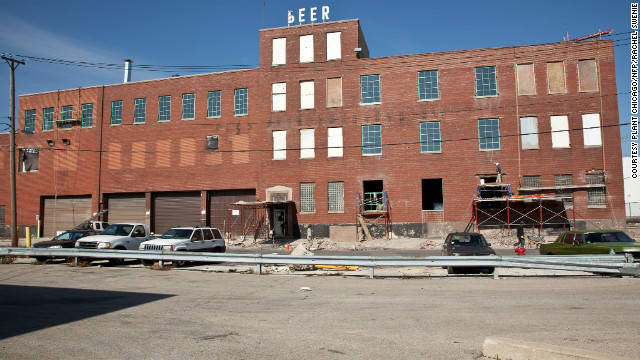 Posted May 29, 2012, 3:32 PM
Posted May 29, 2012, 3:32 PM
|
 |
Registered User
|
|
Join Date: Aug 2002
Location: Toronto
Posts: 52,200
|
|
'Vertical farm' blossoms at meatpacking plant
May 29, 2012
By Lauren Said-Moorhouse
Read More: http://www.cnn.com/2012/05/29/us/pla...html?hpt=us_t2
Quote:
An old meatpacking plant on Chicago's South Side is being transformed into an eco farm, which its founders says will produce food sustainably, while creating zero waste. American entrepreneur John Edel is the founder of "The Plant," a vertical-farm initiative that he hopes will show people the ease of adapting to green food production in urban living environments.
- In 2010 Edel began repurposing the meatpacking plant and two years on it has opened its doors to both the public, and business opportunities. Edel says of The Plant's ethos: "It started out minimal (waste) because that's how I've always operated ... Using as little resource as possible to do things. At a certain point I realized if we built an anaerobic digester, we could get our waste down to zero." The Plant's anaerobic digester uses bacteria to break down organic waste into biogas -- comprised of methane and carbon dioxide -- and material that can be used as fertilizer. A "combined heat and power system" will convert the methane into energy, which Edel says will take The Plant completely off grid and allow it to produce large quantities of food with zero waste output.
- Despite still being under construction The Plant currently has five tenants, including aquaponic farms, a hydroponic farm, bakers, tilapia fish breeders, a mushroom garden and a kombucha tea brewer (a type of tea said to have health benefits). Their products are sold to local restaurants, cafes and markets, as well as used to produce more food within the farm itself. Recycling is also a big part of the inner workings of The Plant and tenants work with each other to use their waste output in their food production and farming techniques. For example, the tilapia fish produce ammonia-based waste, which is sent through a biofilter before the nitrates are fed to plants growing in hydroponic beds. The plants absorb the nitrates, cleaning the water, which is then returned to the fish in an example of a "completed loop cycle." Edel says: "The key to this farm is the closing of loops: energy loops; resource loops; money loops -- by keeping jobs local. If you can close the loops, you can make things more sustainable."
.....
|

__________________
ASDFGHJK
|